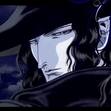Kathryn Troy's Blog, page 16
March 16, 2018
Well-done Holmes! - A Study in Scarlet Women
As a rule, I stay away from Sherlock Holmes pastiches. I have read the tales of Sir Doyle's detective, dismissing all others who would use Holmes's name as unworthy imitations. Even in media adaptations, only two Holmes hit the mark: Cushing, who sadly played Sherlock too rarely, and Jeremy Brett, who is Sherlock Holmes.
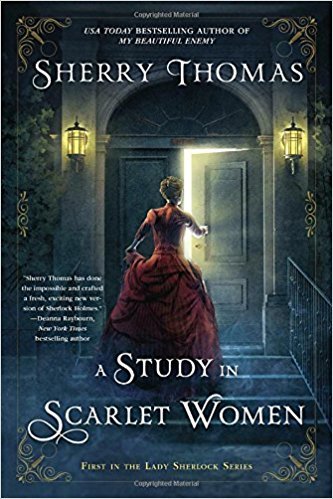 I make my persnicketyness about this well-loved character clear so that you will understand me when I say that Sherry Thomas's feminine twist on Holmes in her new series, begun with A Study in Scarlet Women , was excellent. She hit all the right notes of tone, period, and style without it feeling forced, overwrought, or overly derivative. Her characterization of her entire book's population was spot-on as we encounter discontented nobility, resentful and secretive servants, and inquisitive Inspectors. In some ways, she added to Sir Doyle's universe by addressing in more intimate and emotional terms the turmoil of households constrained by London Society, and elucidating as an organic element of the story the severe limitations of women outside of marriage. I wasn't hit over the head with a feminist message. It was simply an establishment of the world in which Charlotte Holmes, who advertises the deductive services of "her brother" Sherlock, lives. It was done superbly and without unnecessary fanfare to make her expulsion from society feel out of place, when it most certainly wasn't.
I make my persnicketyness about this well-loved character clear so that you will understand me when I say that Sherry Thomas's feminine twist on Holmes in her new series, begun with A Study in Scarlet Women , was excellent. She hit all the right notes of tone, period, and style without it feeling forced, overwrought, or overly derivative. Her characterization of her entire book's population was spot-on as we encounter discontented nobility, resentful and secretive servants, and inquisitive Inspectors. In some ways, she added to Sir Doyle's universe by addressing in more intimate and emotional terms the turmoil of households constrained by London Society, and elucidating as an organic element of the story the severe limitations of women outside of marriage. I wasn't hit over the head with a feminist message. It was simply an establishment of the world in which Charlotte Holmes, who advertises the deductive services of "her brother" Sherlock, lives. It was done superbly and without unnecessary fanfare to make her expulsion from society feel out of place, when it most certainly wasn't.
Thomas also contributed something meaningful to the tropes associated with Holmes, especially the odd and extraordinary nature of his mental faculties. Depicting Charlotte as someone who lives on the higher-functioning end of the autism spectrum was a master stroke. It made Charlotte's peculiarities more believable, and painted the specter of the Holmes created in this series as more human-more understandable in her extraordinary life, driven by facts and observations rather than emotions. At the same time, it helped to establish Charlotte as a woman who could not and would not live according to the rules of a society in which she perpetually felt alienated. This characterization created a greater sense depth for Charlotte and for her interactions with the rest of the people in the book.
I also greatly appreciated that Inspector Treadles (Lestrade) wasn't a joke. He was fleshed out both as a man and as an inspector. And by God, he was competent! That might be a first for the Scotland Yard pseudo-sidekicks who always get such short shrift in these stories. He needed only a nudge in the right direction, and he was able to hold his own in what was an immensely satisfying mystery.
That perhaps was the most pleasant surprise. The mystery of this book was top-notch. There were little cases amidst the broader case, which actually involved four deaths, and all of them felt right at home in the Holmes universe. They were certainly the kinds of cases the man himself would have undertaken, but they were all fresh iterations of the expected story-types and characters. This author is one who knows her stuff, and knows how to spin it well, to pull from the depths of something so tried-and-true and give us something new and exciting. The little hints of romance (which is all they were in this book) were just enough for you to notice, and only represented a minor shift in the tone of this mystery compared to Sherlock. Just enough to raise an eyebrow and leave you curious for more.
I don't know which part of my brain malfunctioned the day I decided to give the Lady Sherlock a try, but Thomas has something quite special here, and I'll be watching with a keen interest. The second book made its way to the top of my list in short order.
K Rating: 5/5
 Me & the hubby a few years ago, inspecting the rooms at 221B Baker Street-of
Me & the hubby a few years ago, inspecting the rooms at 221B Baker Street-of
The Sherlock Holmes Museum, that is.
 I make my persnicketyness about this well-loved character clear so that you will understand me when I say that Sherry Thomas's feminine twist on Holmes in her new series, begun with A Study in Scarlet Women , was excellent. She hit all the right notes of tone, period, and style without it feeling forced, overwrought, or overly derivative. Her characterization of her entire book's population was spot-on as we encounter discontented nobility, resentful and secretive servants, and inquisitive Inspectors. In some ways, she added to Sir Doyle's universe by addressing in more intimate and emotional terms the turmoil of households constrained by London Society, and elucidating as an organic element of the story the severe limitations of women outside of marriage. I wasn't hit over the head with a feminist message. It was simply an establishment of the world in which Charlotte Holmes, who advertises the deductive services of "her brother" Sherlock, lives. It was done superbly and without unnecessary fanfare to make her expulsion from society feel out of place, when it most certainly wasn't.
I make my persnicketyness about this well-loved character clear so that you will understand me when I say that Sherry Thomas's feminine twist on Holmes in her new series, begun with A Study in Scarlet Women , was excellent. She hit all the right notes of tone, period, and style without it feeling forced, overwrought, or overly derivative. Her characterization of her entire book's population was spot-on as we encounter discontented nobility, resentful and secretive servants, and inquisitive Inspectors. In some ways, she added to Sir Doyle's universe by addressing in more intimate and emotional terms the turmoil of households constrained by London Society, and elucidating as an organic element of the story the severe limitations of women outside of marriage. I wasn't hit over the head with a feminist message. It was simply an establishment of the world in which Charlotte Holmes, who advertises the deductive services of "her brother" Sherlock, lives. It was done superbly and without unnecessary fanfare to make her expulsion from society feel out of place, when it most certainly wasn't.Thomas also contributed something meaningful to the tropes associated with Holmes, especially the odd and extraordinary nature of his mental faculties. Depicting Charlotte as someone who lives on the higher-functioning end of the autism spectrum was a master stroke. It made Charlotte's peculiarities more believable, and painted the specter of the Holmes created in this series as more human-more understandable in her extraordinary life, driven by facts and observations rather than emotions. At the same time, it helped to establish Charlotte as a woman who could not and would not live according to the rules of a society in which she perpetually felt alienated. This characterization created a greater sense depth for Charlotte and for her interactions with the rest of the people in the book.
I also greatly appreciated that Inspector Treadles (Lestrade) wasn't a joke. He was fleshed out both as a man and as an inspector. And by God, he was competent! That might be a first for the Scotland Yard pseudo-sidekicks who always get such short shrift in these stories. He needed only a nudge in the right direction, and he was able to hold his own in what was an immensely satisfying mystery.
That perhaps was the most pleasant surprise. The mystery of this book was top-notch. There were little cases amidst the broader case, which actually involved four deaths, and all of them felt right at home in the Holmes universe. They were certainly the kinds of cases the man himself would have undertaken, but they were all fresh iterations of the expected story-types and characters. This author is one who knows her stuff, and knows how to spin it well, to pull from the depths of something so tried-and-true and give us something new and exciting. The little hints of romance (which is all they were in this book) were just enough for you to notice, and only represented a minor shift in the tone of this mystery compared to Sherlock. Just enough to raise an eyebrow and leave you curious for more.
I don't know which part of my brain malfunctioned the day I decided to give the Lady Sherlock a try, but Thomas has something quite special here, and I'll be watching with a keen interest. The second book made its way to the top of my list in short order.
K Rating: 5/5
 Me & the hubby a few years ago, inspecting the rooms at 221B Baker Street-of
Me & the hubby a few years ago, inspecting the rooms at 221B Baker Street-ofThe Sherlock Holmes Museum, that is.
Published on March 16, 2018 04:07
March 12, 2018
A Cacophany of Magics - The Witches of New York
Eleanor St. Clair and Adelaide Thom run an unassuming tea shop in turn-of-the-century New York. Eleanor brews teas, potions, and other concoctions to encourage dreams, ease heartaches, and stop/start female fertility, consulting her mother's grimoire all the while. Adelaide reads tarot, deducing people's fates from their demeanor as much as from their cards.
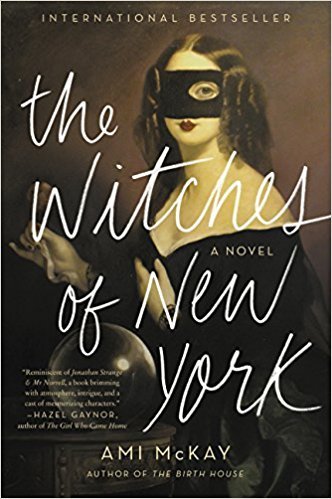 Their cozy little independent shop in The Witches of New York is in for some changes as a third young witch, Beatrice Dunn, travels from upstate New York to come live with them. Her specialty? She talks to ghosts.
Their cozy little independent shop in The Witches of New York is in for some changes as a third young witch, Beatrice Dunn, travels from upstate New York to come live with them. Her specialty? She talks to ghosts.
I wanted to like this tale of the strange and supernatural in New York, a place with an illustrious haunted history, but there was just much too much going on, and all the little threads never really fit together quite right. The tarot-reading witch with a sideshow past, the grimoire-reading cunning witch, and the Spiritualist witch (if indeed you call such people witches) seem an unlikely trio, thrown together by circumstance, not common experience or talent. And if it wasn't enough to be juggling multiple definitions of such a broadly overused term, there were also demons, fairies, and oriental mystics thrown into the mix. It was simply too much all at once, and the story suffered from lack of cohesion, and too many little passages or concepts thrown in that didn't lead anywhere in particular. They were good flavor text, and usually described quite well, but they lent nothing in terms of narrative tightness.
The characters themselves, for the most part, were well-developed, but the structure of the entire book felt imbalanced. More than halfway through the book, the tone that something was about to happen prevailed, rather than that something was actually happening over the course of the book. And while it did feel that the author had taken some pains to lend each of these thematic layers (witches, wisewomen, demons, etc.) a degree of authenticity, in other places it felt like a cursory amount of research, which might lead you to the most expected terms and references. (However, that could simply be my take on such things, since I've made my academic career on such topics).
The plot came and went without much consequence, feeling like the weak start of an episodic series for these women, though there's no indication that any subsequent titles are in store. Harsh as it may seem, the hint at more interesting stories and more complex plotting that never happened left me wondering about the reason for the book's existence. I can't really be more blunt about my reaction to this book than that.
K Rating: 2/5
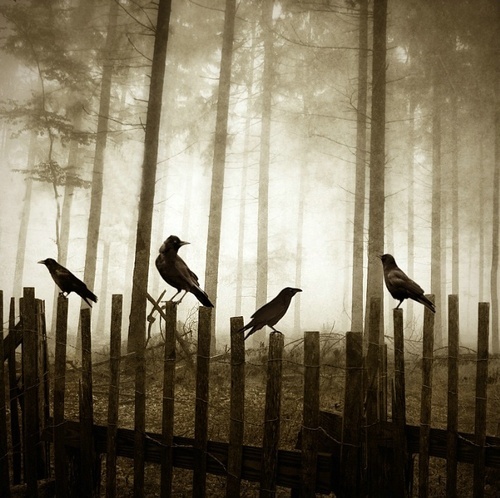 While the Raven Perdu was interesting, it was a little too Sabrina
While the Raven Perdu was interesting, it was a little too Sabrina
for me. Never liked that show.
 Their cozy little independent shop in The Witches of New York is in for some changes as a third young witch, Beatrice Dunn, travels from upstate New York to come live with them. Her specialty? She talks to ghosts.
Their cozy little independent shop in The Witches of New York is in for some changes as a third young witch, Beatrice Dunn, travels from upstate New York to come live with them. Her specialty? She talks to ghosts.I wanted to like this tale of the strange and supernatural in New York, a place with an illustrious haunted history, but there was just much too much going on, and all the little threads never really fit together quite right. The tarot-reading witch with a sideshow past, the grimoire-reading cunning witch, and the Spiritualist witch (if indeed you call such people witches) seem an unlikely trio, thrown together by circumstance, not common experience or talent. And if it wasn't enough to be juggling multiple definitions of such a broadly overused term, there were also demons, fairies, and oriental mystics thrown into the mix. It was simply too much all at once, and the story suffered from lack of cohesion, and too many little passages or concepts thrown in that didn't lead anywhere in particular. They were good flavor text, and usually described quite well, but they lent nothing in terms of narrative tightness.
The characters themselves, for the most part, were well-developed, but the structure of the entire book felt imbalanced. More than halfway through the book, the tone that something was about to happen prevailed, rather than that something was actually happening over the course of the book. And while it did feel that the author had taken some pains to lend each of these thematic layers (witches, wisewomen, demons, etc.) a degree of authenticity, in other places it felt like a cursory amount of research, which might lead you to the most expected terms and references. (However, that could simply be my take on such things, since I've made my academic career on such topics).
The plot came and went without much consequence, feeling like the weak start of an episodic series for these women, though there's no indication that any subsequent titles are in store. Harsh as it may seem, the hint at more interesting stories and more complex plotting that never happened left me wondering about the reason for the book's existence. I can't really be more blunt about my reaction to this book than that.
K Rating: 2/5
 While the Raven Perdu was interesting, it was a little too Sabrina
While the Raven Perdu was interesting, it was a little too Sabrinafor me. Never liked that show.
Published on March 12, 2018 03:36
March 1, 2018
Time Travel at its Most Awesome - Dark
Stand aside, Stranger Things, you've got some competition. If you're anything like me, and can't get enough of dark, speculative fiction, look no further than Netflix's original show
Dark
. This was an amazing blend of small-town mystery, family drama, police procedural, mad science, supernatural forces, and time-travel.
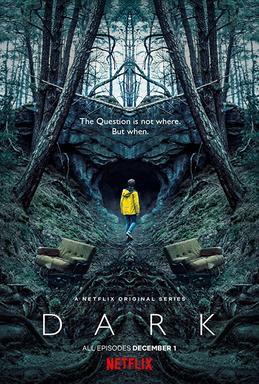 That may sound like a lot to swallow, but all of these elements of the show are handled so deftly and organically that you will be gripping the edge of your seat. This show begs to be binged as you follow along with the latest tragedy in the small German town of Winden- another missing boy. He disappeared without a trace, just like the boy that vanished exactly thirty years ago to the day. And when corpses literally appear from nowhere, it becomes clear very quickly that a time-travelling portal, hidden in a cave in Winden, is connected to the sudden disappearances and reappearances of the boys as well as the Fortian like phenomena (electrical disturbances, birds falling from the sky) that some Winden residents have been recording all their lives. It could also have something to do with the nuclear power plant that provides most of the town with employment.
That may sound like a lot to swallow, but all of these elements of the show are handled so deftly and organically that you will be gripping the edge of your seat. This show begs to be binged as you follow along with the latest tragedy in the small German town of Winden- another missing boy. He disappeared without a trace, just like the boy that vanished exactly thirty years ago to the day. And when corpses literally appear from nowhere, it becomes clear very quickly that a time-travelling portal, hidden in a cave in Winden, is connected to the sudden disappearances and reappearances of the boys as well as the Fortian like phenomena (electrical disturbances, birds falling from the sky) that some Winden residents have been recording all their lives. It could also have something to do with the nuclear power plant that provides most of the town with employment.
The storytelling is flawless as we see different characters at different phases of their life- as children, adults, and as elders, and we see in a compelling way not only how the past influences in the future but, in the case of Winden, how the future shapes the past. Layers of connections between the characters and their relationships throughout their lives provides a healthy dose of intrigue and suspense, pulling you into moments that forge people's identities just as the few characters who travel through time aim to affect those moments. Some of these travelers are discovering eye-opening truths, and others are out to do despicable things for god-only-knows-what reasons. At the end of the first season, though plenty of questions were answered, I have a million more. And I think this clarity in the storytelling, despite the aura of the unknown shrouding the entire show, is really perfect, especially for those types (like me) who screamed at my television for more answers as Twin Peaks: The Return came to a close. If you were in that camp, then this show is definitely for you.
Dark is by far the best treatment of the concept of time travel I have ever seen-you get just enough of the theoretical concept to understand how the show operates, but there's still so much mystery in how those theories actually apply to the people who affect time, and who are affected by time-travelers. Those interpersonal influences are so powerful in this show because of the serious treatment of the consequences (it's hard to laugh about missing/dead children), and is due in no small part to the absolutely phenomenal acting across the show. All of the characters, from the adults down to the teens, played their parts so remarkably well, and their range of emotions - anger, confusion, disbelief, pain, loss, betrayal- all of those things were riveting to watch.
And just when you least expect it, the writers through another wrinkle of time into the plot, and then another. This show's keeping up a quick pace, and certainly has me chomping at the bit for Season 2. Also, I'm obsessed with the soundtrack. Pay attention to it because it, like the show it embodies, is awesome.
K Rating: 5/5
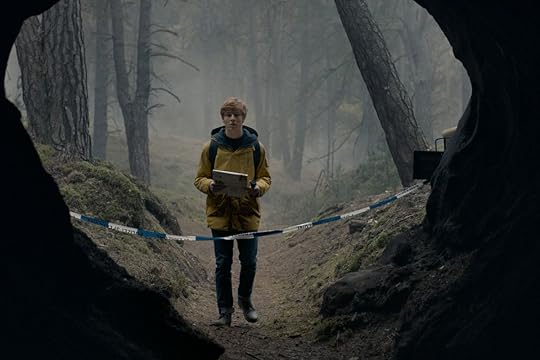
 That may sound like a lot to swallow, but all of these elements of the show are handled so deftly and organically that you will be gripping the edge of your seat. This show begs to be binged as you follow along with the latest tragedy in the small German town of Winden- another missing boy. He disappeared without a trace, just like the boy that vanished exactly thirty years ago to the day. And when corpses literally appear from nowhere, it becomes clear very quickly that a time-travelling portal, hidden in a cave in Winden, is connected to the sudden disappearances and reappearances of the boys as well as the Fortian like phenomena (electrical disturbances, birds falling from the sky) that some Winden residents have been recording all their lives. It could also have something to do with the nuclear power plant that provides most of the town with employment.
That may sound like a lot to swallow, but all of these elements of the show are handled so deftly and organically that you will be gripping the edge of your seat. This show begs to be binged as you follow along with the latest tragedy in the small German town of Winden- another missing boy. He disappeared without a trace, just like the boy that vanished exactly thirty years ago to the day. And when corpses literally appear from nowhere, it becomes clear very quickly that a time-travelling portal, hidden in a cave in Winden, is connected to the sudden disappearances and reappearances of the boys as well as the Fortian like phenomena (electrical disturbances, birds falling from the sky) that some Winden residents have been recording all their lives. It could also have something to do with the nuclear power plant that provides most of the town with employment.The storytelling is flawless as we see different characters at different phases of their life- as children, adults, and as elders, and we see in a compelling way not only how the past influences in the future but, in the case of Winden, how the future shapes the past. Layers of connections between the characters and their relationships throughout their lives provides a healthy dose of intrigue and suspense, pulling you into moments that forge people's identities just as the few characters who travel through time aim to affect those moments. Some of these travelers are discovering eye-opening truths, and others are out to do despicable things for god-only-knows-what reasons. At the end of the first season, though plenty of questions were answered, I have a million more. And I think this clarity in the storytelling, despite the aura of the unknown shrouding the entire show, is really perfect, especially for those types (like me) who screamed at my television for more answers as Twin Peaks: The Return came to a close. If you were in that camp, then this show is definitely for you.
Dark is by far the best treatment of the concept of time travel I have ever seen-you get just enough of the theoretical concept to understand how the show operates, but there's still so much mystery in how those theories actually apply to the people who affect time, and who are affected by time-travelers. Those interpersonal influences are so powerful in this show because of the serious treatment of the consequences (it's hard to laugh about missing/dead children), and is due in no small part to the absolutely phenomenal acting across the show. All of the characters, from the adults down to the teens, played their parts so remarkably well, and their range of emotions - anger, confusion, disbelief, pain, loss, betrayal- all of those things were riveting to watch.
And just when you least expect it, the writers through another wrinkle of time into the plot, and then another. This show's keeping up a quick pace, and certainly has me chomping at the bit for Season 2. Also, I'm obsessed with the soundtrack. Pay attention to it because it, like the show it embodies, is awesome.
K Rating: 5/5

Published on March 01, 2018 13:09
February 22, 2018
Not as Good as the First: The Age of Swords
This is the second time in recent memory that I've thoroughly enjoyed the start of a fantasy series, only to be let down by the second book. Aren't later books supposed to be better, because they have a little less establishing work to do?
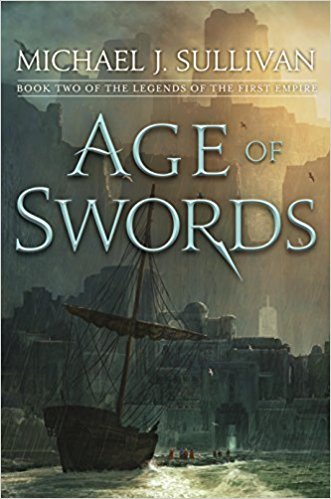 The Age of Myth
was somewhat safe and tropish fantasy, but I liked the spin of the Fhrey being discredited as gods, and how the consequences of that discovery develop. Its sequel,
Age of Swords
, starts off strong with the Fhrey (the elven class) punishing the Runic dulls (the human class) for killing a couple of their own. It frightens Persephone into action, stirring all of the Runic tribes to unite and elect a single leader to confront the Fhrey. They have varying degrees of help from marginalized Fhreys and Dirgs (dwarven class), and this volume consists entirely of Persephone's struggle to get everyone on-board with going to war against the Fhrey before the Fhrey annihilate them. But it's an uphill climb. First, she must get all the chieftains to agree to meet. Then they have to agree to have a Koenig (a solitary leader). When all fingers point to Raithe, the only survivor of clan Direa, and he refuses because they don't have the manpower or the weapons, Persephone takes her merry band of Ren females off to Dirg-land to get metal swords. She becomes a stronger character than she was in the first book, if that's possible, and her coterie grows as well-particularly Moya, the warrioress-in-training.
The Age of Myth
was somewhat safe and tropish fantasy, but I liked the spin of the Fhrey being discredited as gods, and how the consequences of that discovery develop. Its sequel,
Age of Swords
, starts off strong with the Fhrey (the elven class) punishing the Runic dulls (the human class) for killing a couple of their own. It frightens Persephone into action, stirring all of the Runic tribes to unite and elect a single leader to confront the Fhrey. They have varying degrees of help from marginalized Fhreys and Dirgs (dwarven class), and this volume consists entirely of Persephone's struggle to get everyone on-board with going to war against the Fhrey before the Fhrey annihilate them. But it's an uphill climb. First, she must get all the chieftains to agree to meet. Then they have to agree to have a Koenig (a solitary leader). When all fingers point to Raithe, the only survivor of clan Direa, and he refuses because they don't have the manpower or the weapons, Persephone takes her merry band of Ren females off to Dirg-land to get metal swords. She becomes a stronger character than she was in the first book, if that's possible, and her coterie grows as well-particularly Moya, the warrioress-in-training.
Of course I'm summarizing and leaving out parts, but that's the main thrust of the tale. And yet, Age of Swords felt remarkably slow and drawn-out. Each step in Persephone's quest got stretched into more and more sub-steps, and it kept her separated from Dull Tyre, the scene of the action, for an inordinate amount of time. Raithe's stubborness is still tropish (he's not the first or the last reluctant hero), but it didn't grow him appreciably as a character, and in fact he had little to do with this book, which is a surprise, given how integral he was to the previous installment. Other characters-I think of Arion in particular-felt like tag-alongs, hold-outs from the first book whose part in the story felt forced and arbitrary, rather than organic. For a good chunk of it she is metaphorically (if not physically) absent, so it really did beg the question as to why she was there at all. And I could do entirely without the catastrophic escapades of the Fhrey prince.
The biggest problem I had with this book was the dialogue-it dragged in multiple places, and people who I found witty and funny the first time around struck me as redundant and overly wordy here. The most egregious parts were, sadly, related to some of the things I found most interesting. I like that, despite the generally typical feel of this fantasy, that it is set in the beginning of the Iron Age, or its approximation, rather than something akin to the Middle Ages. But the constant and exhausting descriptions of the world's firsts-paper, arrows, chain-mail, they turned something intriguing into something boring and repetitive. Every exchange felt like a series of monologues spliced together. The length of some people speaking to each other-again, Arion is an offender-just defied nature. No one would listen to a lecture as long as hers on the benefit of using the art, especially a disinterested, flighty, short-minded, teenage girl.
And without giving anything away, its ending was painfully similar to the first. The eye-brow raising comments between Nephron and Malcolm piqued by curiosity in the first book, but this time around just felt like more of the same-a cheap trick.
I still want to know what happens, but I'd like to see tighter writing focused on the main plot, rather than a story fattened up by adventures that, even in terms of character growth, will ultimately not matter.
**Please excuse any misspellings of character names and places in this post-this was an audio book**
K Rating: 3/5
 The Age of Myth
was somewhat safe and tropish fantasy, but I liked the spin of the Fhrey being discredited as gods, and how the consequences of that discovery develop. Its sequel,
Age of Swords
, starts off strong with the Fhrey (the elven class) punishing the Runic dulls (the human class) for killing a couple of their own. It frightens Persephone into action, stirring all of the Runic tribes to unite and elect a single leader to confront the Fhrey. They have varying degrees of help from marginalized Fhreys and Dirgs (dwarven class), and this volume consists entirely of Persephone's struggle to get everyone on-board with going to war against the Fhrey before the Fhrey annihilate them. But it's an uphill climb. First, she must get all the chieftains to agree to meet. Then they have to agree to have a Koenig (a solitary leader). When all fingers point to Raithe, the only survivor of clan Direa, and he refuses because they don't have the manpower or the weapons, Persephone takes her merry band of Ren females off to Dirg-land to get metal swords. She becomes a stronger character than she was in the first book, if that's possible, and her coterie grows as well-particularly Moya, the warrioress-in-training.
The Age of Myth
was somewhat safe and tropish fantasy, but I liked the spin of the Fhrey being discredited as gods, and how the consequences of that discovery develop. Its sequel,
Age of Swords
, starts off strong with the Fhrey (the elven class) punishing the Runic dulls (the human class) for killing a couple of their own. It frightens Persephone into action, stirring all of the Runic tribes to unite and elect a single leader to confront the Fhrey. They have varying degrees of help from marginalized Fhreys and Dirgs (dwarven class), and this volume consists entirely of Persephone's struggle to get everyone on-board with going to war against the Fhrey before the Fhrey annihilate them. But it's an uphill climb. First, she must get all the chieftains to agree to meet. Then they have to agree to have a Koenig (a solitary leader). When all fingers point to Raithe, the only survivor of clan Direa, and he refuses because they don't have the manpower or the weapons, Persephone takes her merry band of Ren females off to Dirg-land to get metal swords. She becomes a stronger character than she was in the first book, if that's possible, and her coterie grows as well-particularly Moya, the warrioress-in-training.Of course I'm summarizing and leaving out parts, but that's the main thrust of the tale. And yet, Age of Swords felt remarkably slow and drawn-out. Each step in Persephone's quest got stretched into more and more sub-steps, and it kept her separated from Dull Tyre, the scene of the action, for an inordinate amount of time. Raithe's stubborness is still tropish (he's not the first or the last reluctant hero), but it didn't grow him appreciably as a character, and in fact he had little to do with this book, which is a surprise, given how integral he was to the previous installment. Other characters-I think of Arion in particular-felt like tag-alongs, hold-outs from the first book whose part in the story felt forced and arbitrary, rather than organic. For a good chunk of it she is metaphorically (if not physically) absent, so it really did beg the question as to why she was there at all. And I could do entirely without the catastrophic escapades of the Fhrey prince.
The biggest problem I had with this book was the dialogue-it dragged in multiple places, and people who I found witty and funny the first time around struck me as redundant and overly wordy here. The most egregious parts were, sadly, related to some of the things I found most interesting. I like that, despite the generally typical feel of this fantasy, that it is set in the beginning of the Iron Age, or its approximation, rather than something akin to the Middle Ages. But the constant and exhausting descriptions of the world's firsts-paper, arrows, chain-mail, they turned something intriguing into something boring and repetitive. Every exchange felt like a series of monologues spliced together. The length of some people speaking to each other-again, Arion is an offender-just defied nature. No one would listen to a lecture as long as hers on the benefit of using the art, especially a disinterested, flighty, short-minded, teenage girl.
And without giving anything away, its ending was painfully similar to the first. The eye-brow raising comments between Nephron and Malcolm piqued by curiosity in the first book, but this time around just felt like more of the same-a cheap trick.
I still want to know what happens, but I'd like to see tighter writing focused on the main plot, rather than a story fattened up by adventures that, even in terms of character growth, will ultimately not matter.
**Please excuse any misspellings of character names and places in this post-this was an audio book**
K Rating: 3/5
Published on February 22, 2018 15:57
February 17, 2018
Russian Copycat: The Crown's Game
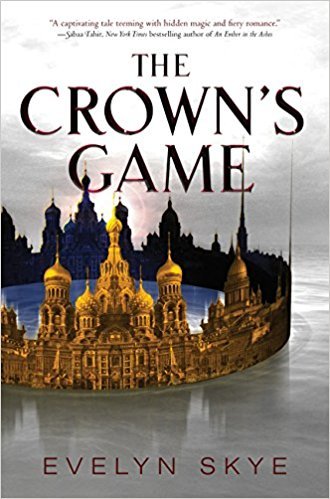 Months ago
Months ago 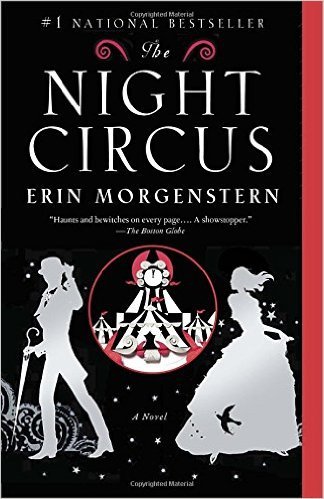 I call foul.The fact that it takes place in Imperial Russia rather than a circus then shows itself for what it is-window-dressing. That's not to say that the descriptions weren't good, but none of it was integral to the story. It could have been set anywhere, as The Night Circus demonstrates. So even though this book was slightly better than The Night Circus, in its enchantments and in the romantic tension between the characters, I can't say that I respect the effort. And in some ways, the advantages of this book are neutralized by certain elements that were saccharine, even when trying to be dark, while in The Night Circus the consequences for all the players becomes more pronounced the deeper into the novel you go. Imperial Russia on the eve of revolution is a very hard and sinister place, or, at least, has the potential to be depicted that way, and I don't think that angle was exploited as much as it could have been to set a more dramatic and compelling tone.
I call foul.The fact that it takes place in Imperial Russia rather than a circus then shows itself for what it is-window-dressing. That's not to say that the descriptions weren't good, but none of it was integral to the story. It could have been set anywhere, as The Night Circus demonstrates. So even though this book was slightly better than The Night Circus, in its enchantments and in the romantic tension between the characters, I can't say that I respect the effort. And in some ways, the advantages of this book are neutralized by certain elements that were saccharine, even when trying to be dark, while in The Night Circus the consequences for all the players becomes more pronounced the deeper into the novel you go. Imperial Russia on the eve of revolution is a very hard and sinister place, or, at least, has the potential to be depicted that way, and I don't think that angle was exploited as much as it could have been to set a more dramatic and compelling tone.If I read the sequel, The Crown's Fate , I'll be hoping for some originality. It's not that I'm naive or unaware of the degree to which most works today are derivative or otherwise influenced by those that have come before us, but the level to which Evelyn Skye copied another author's plot structure and characterization is, to me, disingenuous. For that reason alone, it's entirely possible that I'll stay away.
Rating: 2/5
**New author goal: 30** - Yay!! (Finished in December 2017, I swear! Check my goodreads page!)
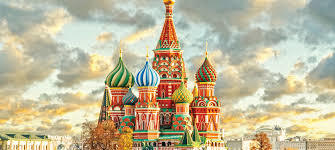
Published on February 17, 2018 05:16
February 9, 2018
Cute Little Story: Vermeer to Eternity
![Vermeer to Eternity (Kindle Single) by [Horowitz, Anthony]](https://i.gr-assets.com/images/S/compressed.photo.goodreads.com/hostedimages/1518274571i/25036470.jpg) I have quite a few Anthony Horrowitz titles on my "to-read" list, mostly because I am in desperate need of contemporary mystery fiction that lives up to my great love of Sir Doyle's work. I started with a Kindle Single, a short story called
Vermeer to Eternity
. I'm a sucker for stories involving the art world, and the fine art of old masters in particular.
I have quite a few Anthony Horrowitz titles on my "to-read" list, mostly because I am in desperate need of contemporary mystery fiction that lives up to my great love of Sir Doyle's work. I started with a Kindle Single, a short story called
Vermeer to Eternity
. I'm a sucker for stories involving the art world, and the fine art of old masters in particular.It was an interesting little premise, the idea that a recently widowed woman might have an unacknowledged Vermeer in her collection, and the foremost Vermeer expert is serendipitously asked to examine it as a favor for a friend. Add a ghost or two into the mix, and you've got a recipe for a great mystery.
I regret that such a cool concept was used on such a short story. I really felt like the setup was sufficient for a full-length work, and my mind was already churning to life guessing all the motives and possibilities. That's always a good sign, and that alone made me happy. I also was really drawn to the writing style. It was clean, succinct prose that had an older sophistication and at the same time managed a contemporary wit-not an easy feat at all.
To sum up, even if I wish this story had gone farther, ultimately I still got what I wanted. A mystery author I can be excited about. Stay tuned for more.
K Rating: 4/5
**New author goal: 29 out of 30**
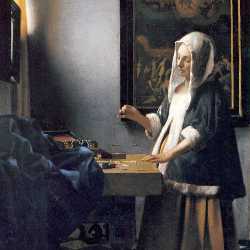
Published on February 09, 2018 17:23
February 4, 2018
Transparently Inspired: The Night of the Moths
There's not much to lose with Kindle First, a Prime benefit to get advanced copies of new books in certain categories once a month. But with an Italian title that claimed to draw on the weird tenor of Twin Peaks as new details surface about an old murder in a small town, I thought I had everything to gain.
![The Night of the Moths by [Bruni, Riccardo]](https://i.gr-assets.com/images/S/compressed.photo.goodreads.com/hostedimages/1517838748i/25006676.jpg) Overall, I came away from
The Night of the Moths
feeling it was underdeveloped. The story of the murdered young girl, Alice, and the boyfriend left behind, was fairly good as different people's stories and motivations unraveled, but there were lots of missing pieces that made this very obviously derivative piece feel quite shallow next to its inspiration.
Overall, I came away from
The Night of the Moths
feeling it was underdeveloped. The story of the murdered young girl, Alice, and the boyfriend left behind, was fairly good as different people's stories and motivations unraveled, but there were lots of missing pieces that made this very obviously derivative piece feel quite shallow next to its inspiration.
First was the lackluster attempt at weirdness - this concept of moths and their proximity to death was way too slight to be cohesive, appearing briefly at the beginning of the text and at the end, but with no unifying, brooding presence throughout, as the title would suggest.
Second was the writing style itself. The story jumps back and forth between multiple third-person and first-person perspectives, and usually without any clear markings that the change has taken place. Nothing at the beginning of chapters to indicate who's speaking/acting, and insufficient context in some cases for two or three pages into a new chapter. It made it very hard for me to figure out on my own whose story was being told. It left me feeling confused and frustrated a majority of the time, and having to re-read passages to understand their meaning. In addition to that, the sentence structure was halting, and did not provide a smooth, tension-filled experience. Single thoughts or scene-setting descriptions were broken up into multiple fragments of sentences, so I kept tripping over the words. It felt crude, not poetic.
And lastly, the homages to Twin Peaks were too on the nose. Multiple explicit references to how Enrico thinks of himself as "Laura Palmer's boyfriend." But worse than that, by omitting some of the structural elements that, together, make Twin Peaks what it is - the covert FBI investigations, the inexplicable phenomena and parallel dimensions that are integral to Laura Palmer's life and death - this story felt like an empty shell, and made me think that maybe the author doesn't appreciate the complexity of his muse, and therefore was blind to how poorly this measured up in comparison. But by referencing the show the way he did, Bruni invited that sort of comparison, which was perhaps his first and most fatal mistake.
Rating: 2/5
**New Author Goal: 28 out of 30**
 Now my blog has more moths in it than this book
Now my blog has more moths in it than this book
![The Night of the Moths by [Bruni, Riccardo]](https://i.gr-assets.com/images/S/compressed.photo.goodreads.com/hostedimages/1517838748i/25006676.jpg) Overall, I came away from
The Night of the Moths
feeling it was underdeveloped. The story of the murdered young girl, Alice, and the boyfriend left behind, was fairly good as different people's stories and motivations unraveled, but there were lots of missing pieces that made this very obviously derivative piece feel quite shallow next to its inspiration.
Overall, I came away from
The Night of the Moths
feeling it was underdeveloped. The story of the murdered young girl, Alice, and the boyfriend left behind, was fairly good as different people's stories and motivations unraveled, but there were lots of missing pieces that made this very obviously derivative piece feel quite shallow next to its inspiration.First was the lackluster attempt at weirdness - this concept of moths and their proximity to death was way too slight to be cohesive, appearing briefly at the beginning of the text and at the end, but with no unifying, brooding presence throughout, as the title would suggest.
Second was the writing style itself. The story jumps back and forth between multiple third-person and first-person perspectives, and usually without any clear markings that the change has taken place. Nothing at the beginning of chapters to indicate who's speaking/acting, and insufficient context in some cases for two or three pages into a new chapter. It made it very hard for me to figure out on my own whose story was being told. It left me feeling confused and frustrated a majority of the time, and having to re-read passages to understand their meaning. In addition to that, the sentence structure was halting, and did not provide a smooth, tension-filled experience. Single thoughts or scene-setting descriptions were broken up into multiple fragments of sentences, so I kept tripping over the words. It felt crude, not poetic.
And lastly, the homages to Twin Peaks were too on the nose. Multiple explicit references to how Enrico thinks of himself as "Laura Palmer's boyfriend." But worse than that, by omitting some of the structural elements that, together, make Twin Peaks what it is - the covert FBI investigations, the inexplicable phenomena and parallel dimensions that are integral to Laura Palmer's life and death - this story felt like an empty shell, and made me think that maybe the author doesn't appreciate the complexity of his muse, and therefore was blind to how poorly this measured up in comparison. But by referencing the show the way he did, Bruni invited that sort of comparison, which was perhaps his first and most fatal mistake.
Rating: 2/5
**New Author Goal: 28 out of 30**
 Now my blog has more moths in it than this book
Now my blog has more moths in it than this book
Published on February 04, 2018 13:33
February 2, 2018
Podcast Interview about Indian Ghosts
This week I had the chance to talk in-depth about my new nonfiction book,
The Specter of the Indian: Race, Gender, and Ghosts in American Seances, 1848-1890
. I had a great discussion with Dr. James Mackay, an Assistant Professor of British and American Literatures at the European University Cyprus. The interview was for the New Books Network series on New Native American Studies. I am happy to share our conversation with you here!
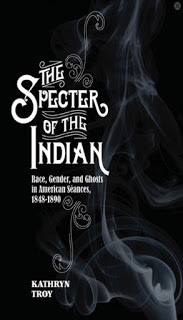

Published on February 02, 2018 13:40
January 26, 2018
Sweetness at the Bottom of the Pie
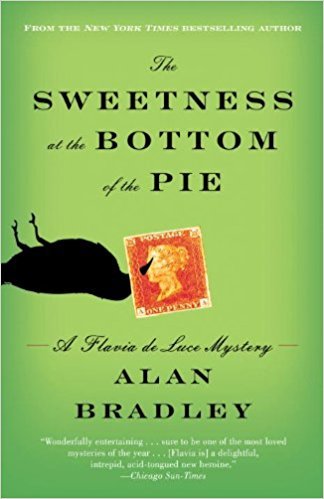
I've been on the hunt for great contemporary mysteries in between long stretches of Conan Doyle and watching television renditions of Christie and G.K. Chesterton. I was hoping for the best with The Sweetness at the Bottom of the Pie , a mystery told through the eyes of a precocious child.
Flavia de Luce is the youngest girl in a family with a deceased mother, a distant father, and vicious sisters. She is left mostly to her own devices as the travels about her small English village, piecing together clues about the strange red-headed man found dead in her garden only hours after his argument with her father behind closed doors the night before.
The plot and unfolding of the mystery was decent, but some intangible quality in the writing itself kept me from feeling compelled to turn pages. Some of it was definitely Flavia herself. She did not strike me as a particularly authentic youngster - she made literary references like one who has read for a full lifetime, certainly not what I would expect of a barely teenage girl. The breadth, let alone the titles referenced, go far beyond what I would believe to be within a girl's intellectual orbit. In many ways, having the story told from her perspective held the story back, rather than enhancing it with a child-like whimsy.
The developments in the plot toward the latter end of the book, regarding the stamp pierced by a bird's beak and left mysteriously on the doorstep, were intriguing but rushed, and left the majority of the story focused on stamp-collecting, which is not what I would call riveting stuff.
A disappointment to be sure, but there's nothing for it but to keep trying.
Rating: 2/5
**New author goal: 27 out of 30**
Published on January 26, 2018 20:20
January 20, 2018
Slowed Momentum: The Glass Magician and The Master Magician
After thoroughly enjoying
The Paper Magician
, I didn't wait as long as I normally would to pick up the second volume,
The Glass Magician
. It being a brief listen and still leaving me hanging, I tuned in to The Master Magician without pause, and so will review both of those books in tandem here.
[image error] Overall, I felt the series declined slowly in quality from the first book, which intrigued me with a unique, whimsical take on magic that focuses on man-made materials as its source: paper, of course, and glass, metal alloys, rubber, and plastic. I was also taken in the first book with the characters, and the start of romantic chemistry between Ceony, a new paper apprentice, and her guardian, Emery Thane. The very hint of romance as a possibility at the very end of the first book, after Ceony travels through Emery's heart to save him from Lyra, his blood-magic-wielding ex-wife, is what made me pick up the rest of the series so quickly.
The romance progressed sure enough in the second and third books, but the tone of that romance was off-putting: it was so chaste, it was barely there. I'm not saying it needs to be erotica-far from it-but even the emotional elements of their romance were very sparse, to the point where I often questioned whether there was romantic tension at all, or if they were just close friends. The passion itself, the aching and yearning, was too cold and proper for me most of the time, and left me confused as to the power of that chemistry. The same is true of the third book, where a two-year-old relationship has been established in the gap between books, but again, there's even less passion to speak of in this third volume.
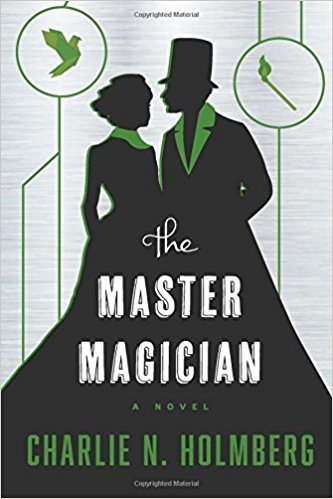 The plot of the later books suffered as well: the idea of fighting excisioners, or blood magicians, was interesting in the first book, but it became quickly formulaic. The saving grace of those plots were the interesting and unique ways that Ceony, a humble folding apprentice, uses something innocuous like paper to overcome a trio of extremely dangerous individuals. The characterization, which at first I admired, became stale as the characters didn't grow. In Ceony's case, she makes the same stupid mistakes, and takes the same stupid risks over and over again. For Emery, he never truly expresses his feelings for Ceony the way she does for him, so he comes off as perpetually distant. He had plenty of near-death opportunities to realize his error, and correct it before something bad happened to the woman he loves, but no. In the end, even though the ending is "happy," I was ultimately frustrated by it, because the warm fuzzy feeling was stifled. Ultimately, both of these halves felt rushed. I rushed through them because I wanted more, and I was left unsatisfied.
The plot of the later books suffered as well: the idea of fighting excisioners, or blood magicians, was interesting in the first book, but it became quickly formulaic. The saving grace of those plots were the interesting and unique ways that Ceony, a humble folding apprentice, uses something innocuous like paper to overcome a trio of extremely dangerous individuals. The characterization, which at first I admired, became stale as the characters didn't grow. In Ceony's case, she makes the same stupid mistakes, and takes the same stupid risks over and over again. For Emery, he never truly expresses his feelings for Ceony the way she does for him, so he comes off as perpetually distant. He had plenty of near-death opportunities to realize his error, and correct it before something bad happened to the woman he loves, but no. In the end, even though the ending is "happy," I was ultimately frustrated by it, because the warm fuzzy feeling was stifled. Ultimately, both of these halves felt rushed. I rushed through them because I wanted more, and I was left unsatisfied.
There is a fourth volume on the horizon, which I'm not sure I'll listen to, since it seems to have nothing to do with anyone I am familiar with. I am disappointed that Holmberg didn't take her strong characters, and strong concept, to their utmost potential. It's a real shame.
K Rating: 2.5/5
[image error] Overall, I felt the series declined slowly in quality from the first book, which intrigued me with a unique, whimsical take on magic that focuses on man-made materials as its source: paper, of course, and glass, metal alloys, rubber, and plastic. I was also taken in the first book with the characters, and the start of romantic chemistry between Ceony, a new paper apprentice, and her guardian, Emery Thane. The very hint of romance as a possibility at the very end of the first book, after Ceony travels through Emery's heart to save him from Lyra, his blood-magic-wielding ex-wife, is what made me pick up the rest of the series so quickly.
The romance progressed sure enough in the second and third books, but the tone of that romance was off-putting: it was so chaste, it was barely there. I'm not saying it needs to be erotica-far from it-but even the emotional elements of their romance were very sparse, to the point where I often questioned whether there was romantic tension at all, or if they were just close friends. The passion itself, the aching and yearning, was too cold and proper for me most of the time, and left me confused as to the power of that chemistry. The same is true of the third book, where a two-year-old relationship has been established in the gap between books, but again, there's even less passion to speak of in this third volume.
 The plot of the later books suffered as well: the idea of fighting excisioners, or blood magicians, was interesting in the first book, but it became quickly formulaic. The saving grace of those plots were the interesting and unique ways that Ceony, a humble folding apprentice, uses something innocuous like paper to overcome a trio of extremely dangerous individuals. The characterization, which at first I admired, became stale as the characters didn't grow. In Ceony's case, she makes the same stupid mistakes, and takes the same stupid risks over and over again. For Emery, he never truly expresses his feelings for Ceony the way she does for him, so he comes off as perpetually distant. He had plenty of near-death opportunities to realize his error, and correct it before something bad happened to the woman he loves, but no. In the end, even though the ending is "happy," I was ultimately frustrated by it, because the warm fuzzy feeling was stifled. Ultimately, both of these halves felt rushed. I rushed through them because I wanted more, and I was left unsatisfied.
The plot of the later books suffered as well: the idea of fighting excisioners, or blood magicians, was interesting in the first book, but it became quickly formulaic. The saving grace of those plots were the interesting and unique ways that Ceony, a humble folding apprentice, uses something innocuous like paper to overcome a trio of extremely dangerous individuals. The characterization, which at first I admired, became stale as the characters didn't grow. In Ceony's case, she makes the same stupid mistakes, and takes the same stupid risks over and over again. For Emery, he never truly expresses his feelings for Ceony the way she does for him, so he comes off as perpetually distant. He had plenty of near-death opportunities to realize his error, and correct it before something bad happened to the woman he loves, but no. In the end, even though the ending is "happy," I was ultimately frustrated by it, because the warm fuzzy feeling was stifled. Ultimately, both of these halves felt rushed. I rushed through them because I wanted more, and I was left unsatisfied.There is a fourth volume on the horizon, which I'm not sure I'll listen to, since it seems to have nothing to do with anyone I am familiar with. I am disappointed that Holmberg didn't take her strong characters, and strong concept, to their utmost potential. It's a real shame.
K Rating: 2.5/5
Published on January 20, 2018 12:04

